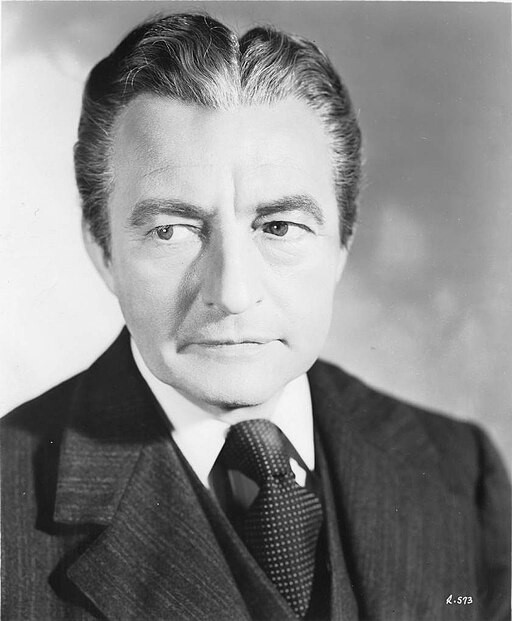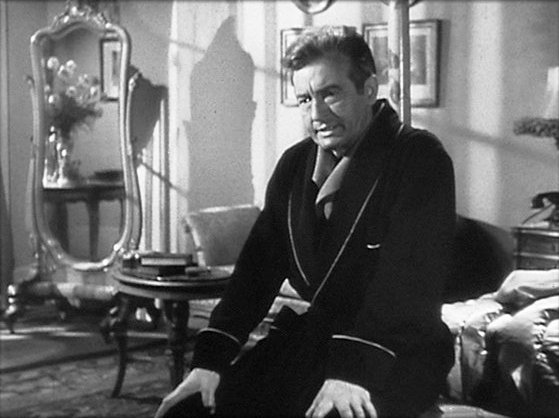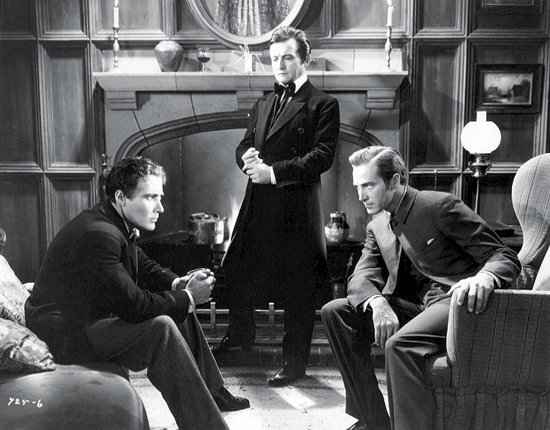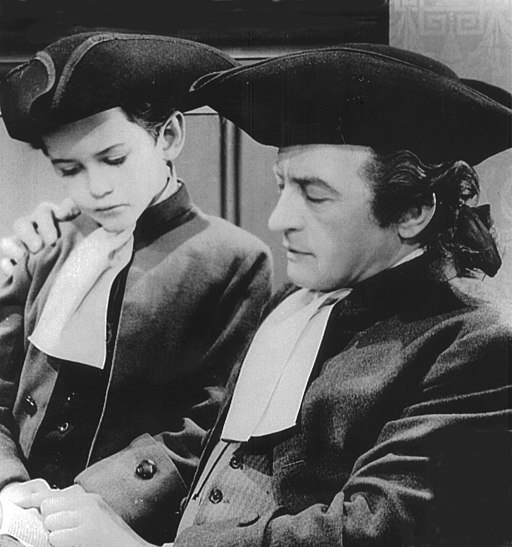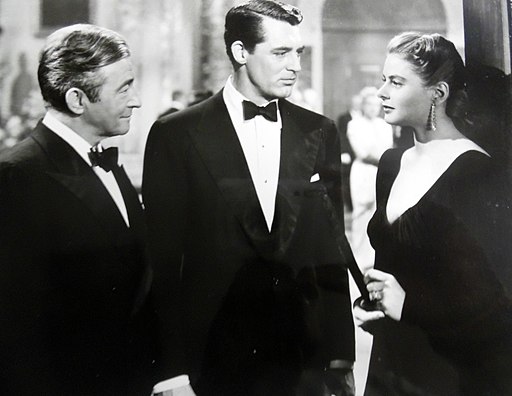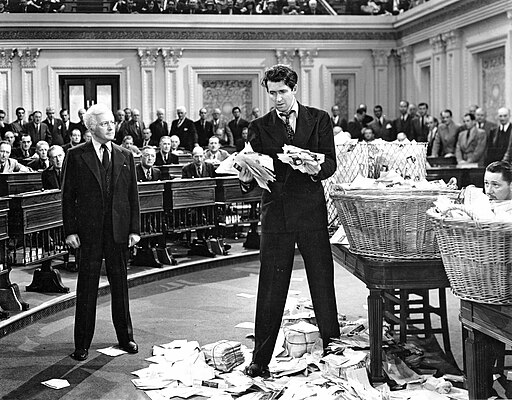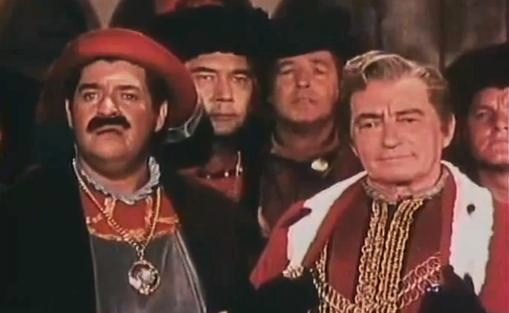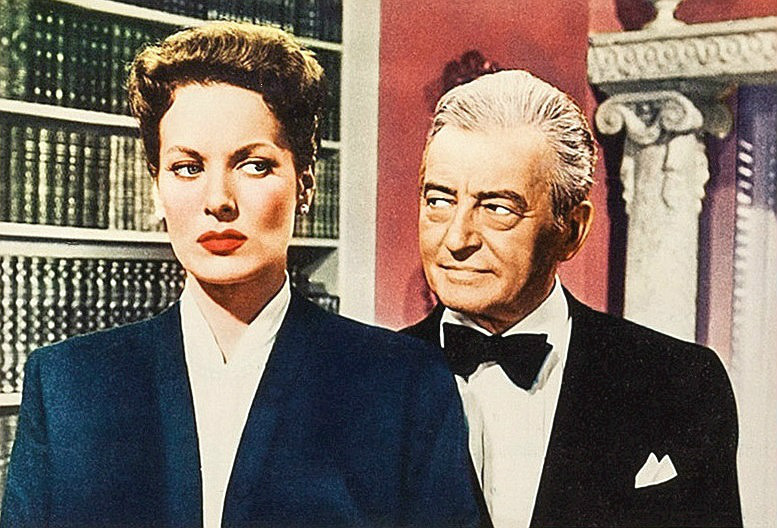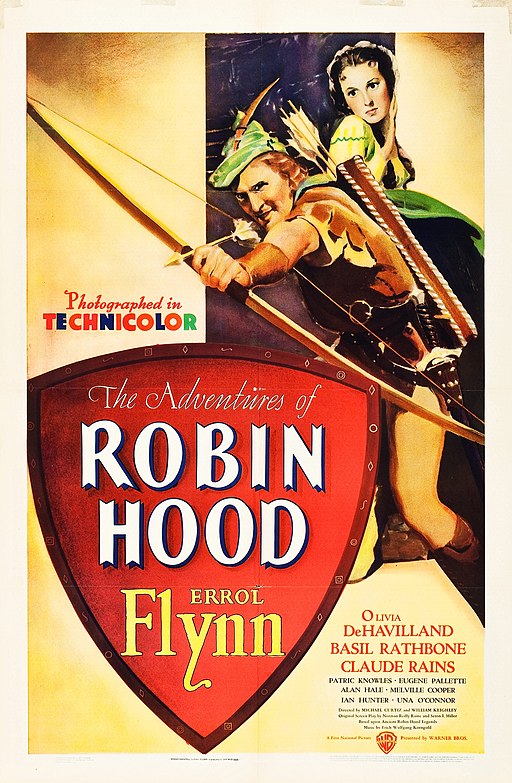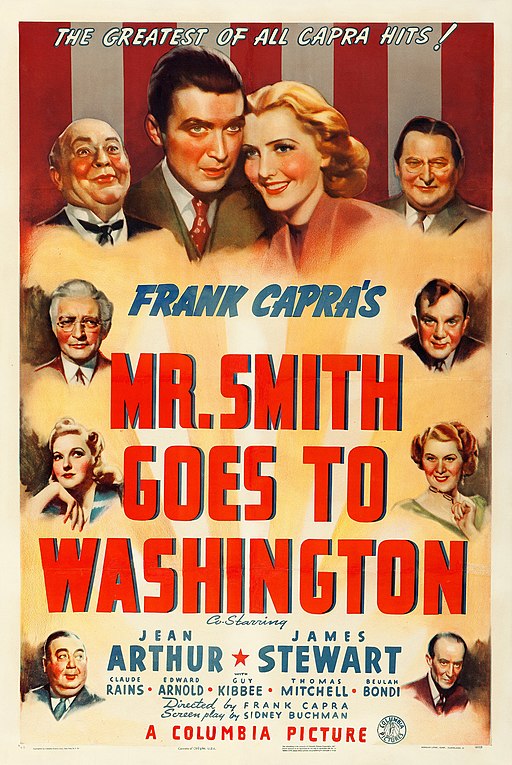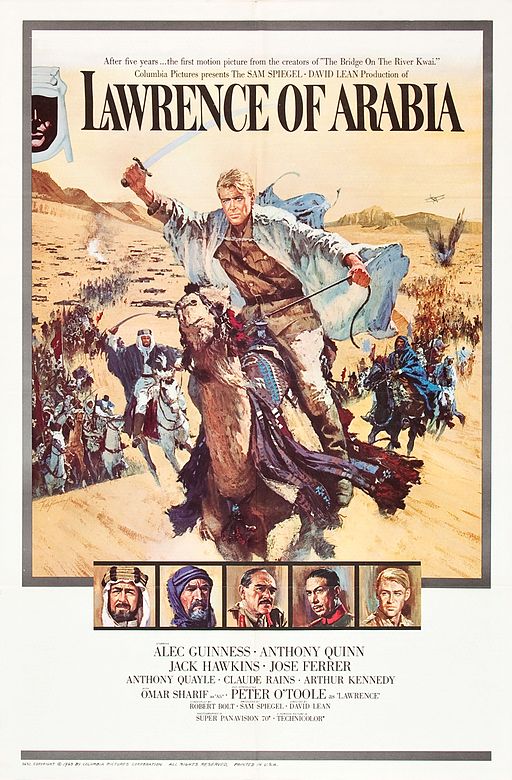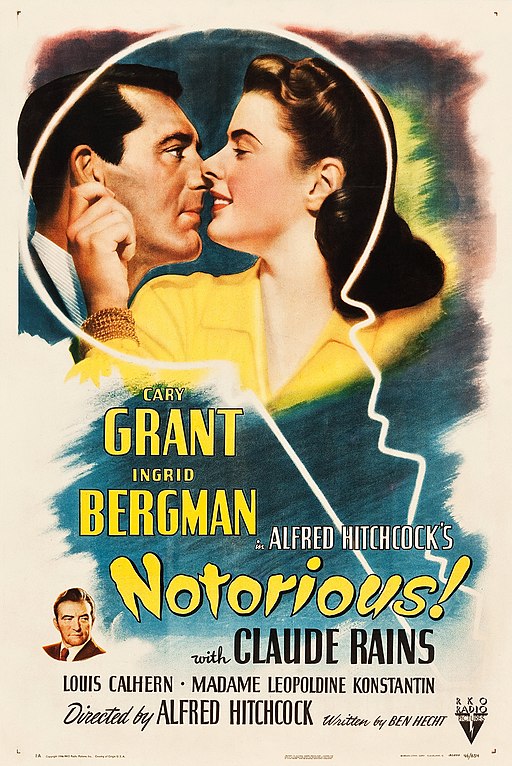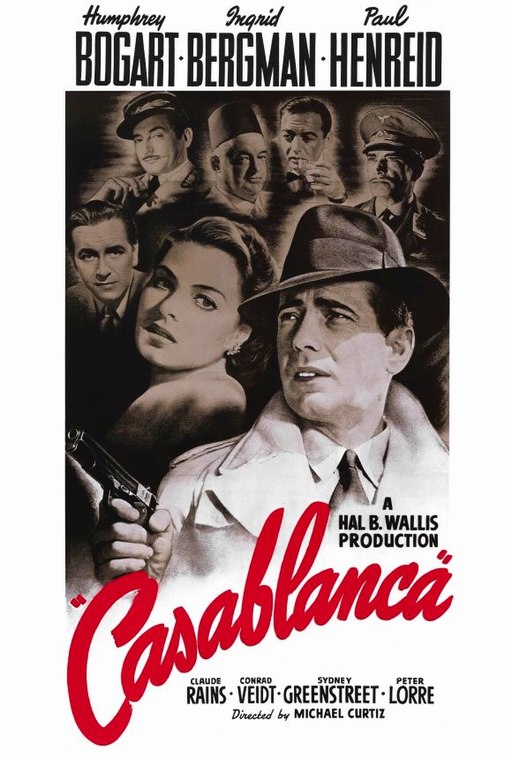Claude Rains
back| Full Name | William Claude Rains |
| Stage Name | Claude Rains |
| Born | November 10, 1889 |
| Birthplace | Camberwell, London, England |
| Died | May 30, 1967 |
| Buried | Red Hill Cemetery, Moultonborough, New Hampshire, USA |
| Married to | Isabel Jeans (1913-1915) - Marie Hemingway (1920-1920) - Beatrix Thomson (1924-1935) - Frances Propper (1935-1956) - Agi Jambor (1959-1967) |
| Children | Jessica Rains (daughter, with Frances Propper) |
| Notable films | The Invisible Man (1933) - Casablanca (1942) - Mr. Smith Goes to Washington (1939) - Notorious (1946) - The Adventures of Robin Hood (1938) - Lawrence of Arabia (1962) |
Claude Rains
Master of Subtlety and Sophistication
Claude Rains, born on November 10, 1889, in London, overcame a challenging childhood and speech impediment to become a celebrated actor. His career began on the London stage, where he honed his distinctive voice and acting prowess.
After serving in World War I, Rains moved to Hollywood, making a striking debut in "The Invisible Man" (1933). Known for his eloquent diction and emotional depth, he excelled in both villainous and sympathetic roles. Notable films include "Casablanca" (1942), "Mr. Smith Goes to Washington" (1939), and "Notorious" (1946).
Rains left an indelible mark on cinema with his remarkable ability to bring complexity and nuance to his characters.
Related
Claude Rains – Biography and Overview of his Career
Claude Rains was an actor of extraordinary talent and presence. Here is a more comprehensive biography that covers his life, career, personal details, and more:
Early Years
- Born on November 10, 1889, in Camberwell, London, England, William Claude Rains had a challenging childhood. He grew up in a slum area in London, with his father, Frederick William Rains, a stage actor, and mother, Emily Eliza Cox.
- Rains overcame a significant speech impediment and his Cockney accent through elocution lessons. His passion for the stage was influenced by his father's career.
Path Towards Success
- Rains' acting career began when he was just 11 years old. He joined the theatrical company of Sir Herbert Beerbohm Tree, where he gained experience in stage production and minor acting roles.
- He served in World War I, where he was involved in a gas attack that resulted in nearly losing his vision in one eye.
- After the war, Rains continued his career in theater, gaining a reputation for his performances on the London stage.
- His transition to film came in 1932 when he was already in his forties. He moved to the U.S. and signed with Universal Studios.
Important Roles and Recognition
- Rains' first American film, "The Invisible Man" (1933), was a significant success, despite him being invisible for most of the film. His voice, however, made a powerful impression.
- He became known for his roles in "Casablanca," "Mr. Smith Goes to Washington," and "Notorious," showcasing his versatility as an actor.
- Rains was nominated several times for the Academy Award for Best Supporting Actor.
Personal Life
- Rains was married six times. His marriages were often short-lived, and he once joked about his inability to be a good husband.
- He had one child, a daughter named Jessica Rains, who also pursued an acting career.
Passions and Interests
- Rains was an avid reader and had a passion for farming and gardening, spending much of his time in his farm in Pennsylvania.
Death and Legacy
- Claude Rains passed away from an abdominal hemorrhage on May 30, 1967, in Laconia, New Hampshire.
- He was buried in Red Hill Cemetery, Moultonborough, New Hampshire, USA.
- Rains left behind a legacy of diverse and powerful performances. His contributions to both theater and film are remembered for their depth, nuance, and sophistication.
Rains' career spanned from the silent era into the golden age of Hollywood, and he remained a respected and influential figure in the acting community until his death.
Video Biography of Claude Rains:
Notable Movies featuring Claude Rains:
1920s
- 1920: "Build Thy House" - A silent film where Rains had an uncredited role.
1930s
- 1933: "The Invisible Man" - Rains plays Dr. Jack Griffin, a scientist who becomes invisible and goes mad. His performance is notable for being largely vocal, as his character is unseen.
- 1935: "The Mystery of Edwin Drood" - As John Jasper, Rains is a choirmaster obsessed with a woman engaged to his nephew in this adaptation of Charles Dickens' unfinished novel.
- 1935: "The Clairvoyant" - Rains portrays a man whose psychic abilities only work when he's near his wife, leading to complex situations.
- 1936: "Hearts Divided" - A historical film where Rains plays Napoleon Bonaparte.
- 1936: "Anthony Adverse" - In this adventure epic, Rains is the villainous Marquis Don Luis.
- 1937: "Stolen Holiday" - Rains plays a fraudulent financier in this romantic drama.
- 1937: "The Prince and the Pauper" - He appears as Earl of Hertford in this adaptation of Mark Twain's novel.
- 1938: "White Banners" - Rains plays Paul Ward, a struggling inventor.
- 1938: "The Adventures of Robin Hood" - As Prince John, Rains delivers a memorable performance in this classic swashbuckler.
- 1939: "Juarez" - He portrays Emperor Maximilian of Mexico in this historical drama.
- 1939: "Daughters Courageous" - Rains is a father trying to reconnect with his daughters.
- 1939: "They Made Me a Criminal" - Playing a detective, Rains chases a wrongly accused boxer.
- 1939: "Four Daughters" - In this family drama, Rains is the father of the titular daughters.
- 1939: "Mr. Smith Goes to Washington" - Rains plays the corrupt Senator Joseph Paine in this political drama.
1940s
- 1940: "Saturday's Children" - Rains is Mr. Halevy, a philosophical inventor.
- 1941: "Four Mothers" - Reprising his role in this sequel to "Four Daughters."
- 1941: "The Sea Wolf" - As Wolf Larsen, Rains is a brutal ship captain in this Jack London adaptation.
- 1942: "Kings Row" - He plays Dr. Alexander Tower in this drama.
- 1942: "Moontide" - Rains is a supporting character in this romantic drama.
- 1942: "Now, Voyager" - As a psychiatrist, Rains helps Bette Davis' character.
- 1942: "Casablanca" - In one of his most famous roles, Rains is Captain Louis Renault in this iconic film.
- 1943: "Phantom of the Opera" - As the Phantom, Rains brings a tragic depth to this horror classic.
- 1943: "Forever and a Day" - A drama where Rains appears in an ensemble cast.
- 1944: "Passage to Marseille" - Reuniting with Humphrey Bogart and other "Casablanca" cast members in this war film.
- 1944: "Mr. Skeffington" - Rains plays the title character, a rich banker.
- 1945: "This Love of Ours" - A romantic drama with Rains in a leading role.
- 1946: "Caesar and Cleopatra" - As Julius Caesar, Rains stars in this historical drama.
- 1946: "Notorious" - In this Hitchcock thriller, Rains is a Nazi spy.
- 1946: "Angel on My Shoulder" - A fantasy film where Rains plays the Devil.
- 1947: "The Unsuspected" - Rains is a suave radio host with a secret.
- 1948: "The Passionate Friends" - In this romantic drama, Rains is a wealthy banker.
- 1949: "Rope of Sand" - A thriller set in the African desert.
1950s and Beyond
- 1950: "Where Danger Lives" - Rains supports in this film noir.
- 1951: "Sealed Cargo" - A war film set in WWII.
- 1953: "The Man Who Watched Trains Go By" - A crime drama with Rains in a key role.
- 1956: "Lisbon" - A spy film set in Portugal.
- 1957: "The Pied Piper of Hamelin" - A musical children's film.
- 1959: "This Earth Is Mine" - A drama set in a vineyard.
- 1962: "Lawrence of Arabia" - Rains plays Mr. Dryden, a diplomat, in this epic film.
His many Marriages:
Claude Rains' personal life, particularly his marital history, was as complex and varied as his film roles. He was married six times throughout his life, with each marriage ending in divorce except for his final marriage, which ended with his death. Here's an overview of his marriages:
- Isabel Jeans (1913-1915): His first marriage was to actress Isabel Jeans, whom he met in the theater. The marriage was short-lived, ending in divorce.
- Marie Hemingway (1920-1920): This was a brief and somewhat enigmatic marriage, about which little is known. It lasted less than a year.
- Beatrix Thomson (1924-1935): Rains' third wife was Beatrix Thomson, an actress. Their marriage lasted for about a decade before ending in divorce.
- Frances Propper (1935-1956): Rains' longest marriage was to Frances Propper. They were married for over two decades, and this union produced his only child, a daughter named Jessica.
- Agi Jambor (1959-1960): Rains then married the pianist Agi Jambor. This marriage, like his earlier ones, was relatively short-lived.
- Rosemary Clark Schrode (1960-1964): His final marriage was to Rosemary Clark Schrode. This marriage ended with Schrode's death in 1964.
Trivia:
A] How Tall was Claude Rains?
Claude Rains was relatively short in stature, standing at about 5 feet 6 inches (168 cm) tall. Despite his height, Rains had a commanding presence on both stage and screen, thanks in large part to his powerful voice and strong acting abilities. His height did not diminish his ability to dominate a scene and leave a lasting impression on his audience.
B] Claude Rains’ Daughter:
Claude Rains' daughter, Jessica Rains, followed in her father's footsteps into the world of acting.
Jessica Rains was born on January 24, 1938, to Claude Rains and his fourth wife, Frances Propper.
Like her father, Jessica pursued a career in acting. She has appeared in various films and television shows. Her career includes both supporting and lead roles, showcasing a range of acting abilities.
One of her notable film roles was in "Kotch" (1971), directed by Jack Lemmon. She also appeared in "Sleeper" (1973), directed by Woody Allen, and had a role in "The Clairvoyant" (1982).
Jessica Rains has made guest appearances in several television series over the years, demonstrating her versatility as an actress.
Claude Rains’s Style of Acting – An Analysis
Claude Rains was renowned for his distinctive acting style, which set him apart in both Hollywood and theater.
Voice and Diction
- Masterful Use of Voice: Rains' voice was one of his most powerful tools. Despite his early struggles with a Cockney accent and speech impediments, he developed a rich, resonant voice that was both clear and expressive. His ability to convey complex emotions through his voice alone was notably demonstrated in "The Invisible Man," where his physical presence was mostly unseen.
Emotional Range and Depth
- Subtle and Nuanced Performances: Rains was known for his ability to portray a wide range of emotions with subtlety and depth. He could convey the inner turmoil or the suave malevolence of his characters in a manner that felt authentic and engaging.
- Complex Characters: Rains often played multifaceted characters, bringing a sense of realism and depth to roles that could have easily become caricatures in less capable hands.
Physicality and Presence
- Commanding Screen Presence: Despite often being of shorter stature, Rains had a commanding presence on screen. He used his body language and facial expressions effectively to add layers to his performances.
- Elegance and Sophistication: Many of his roles were characterized by a certain elegance and sophistication, whether he was playing a nobleman or a villain.
Versatility
- Diverse Roles: Rains' career spanned a variety of genres, from horror in "The Invisible Man" to romantic dramas and historical epics. He was as convincing as a sympathetic character as he was in villainous roles.
- Adaptability: His ability to adapt to different styles and demands of both film and theater showcased his versatile talent. He could switch from stage to screen effortlessly, a testament to his robust training and experience in the theater.
Intellectual Approach
- Intelligent Interpretation of Roles: Rains was known for his intellectual approach to acting. He often brought a thoughtful interpretation to his roles, adding layers of meaning and complexity.
- Influence of Theater Background: His theater background was evident in his approach to film acting, where he brought precision and a deep understanding of character development.
Legacy
- Influential Acting Style: Rains' style influenced the techniques of subsequent generations of actors. His performances were not just about the delivery of lines but about bringing a holistic, nuanced portrayal of complex characters.
- Memorable Performances: Many of his performances remain studied and admired for their craft and depth, continuing to influence actors and filmmakers.
Memorable Quotes from Claude Rains:
Claude Rains delivered many memorable lines throughout his illustrious career. Here are some notable quotes from his films, showcasing his remarkable ability to bring depth and charisma to his characters:
From "Casablanca" (1942)
- "I'm shocked, shocked to find that gambling is going on in here!" - As Captain Louis Renault, Rains delivers this line with a wry irony, moments before being handed his winnings.
- "Round up the usual suspects." - This line, also from Captain Renault, has become iconic in cinema history, epitomizing the blend of cynicism and humor that characterized his role.
From "The Invisible Man" (1933)
- "We'll begin with a reign of terror, a few murders here and there, murders of great men, murders of little men - just to show we make no distinction." - As Dr. Jack Griffin, the Invisible Man, Rains delivers this chilling line, showcasing his character's descent into madness.
From "Mr. Smith Goes to Washington" (1939)
- "I'm not fit to be a Senator! I'm not fit to live! Expel me, not him!" - Playing Senator Joseph Paine, Rains' character breaks down, revealing his guilt and corruption in a moment of emotional intensity.
From "Notorious" (1946)
- "I am married to an American agent." - As Alex Sebastian, Rains delivers this line with a mix of shock and fear, revealing his character's realization of the dangerous situation he is in.
From "The Adventures of Robin Hood" (1938)
- "You speak treason!" "Fluently." - As Prince John, Rains' exchange in this scene is both witty and indicative of the character's arrogant and villainous nature.
From "Mr. Skeffington" (1944)
- "A woman is beautiful when she's loved, and only then." - Rains, as Mr. Skeffington, delivers this line with a mix of melancholy and wisdom.
General Quotes
- Beyond his roles, Rains was known for his witticisms and insights into acting. For example, he once said, "The only two things you can truly depend upon are gravity and greed."
Awards and Recognitions:
Claude Rains, despite his remarkable talent and memorable performances, had a relatively modest list of formal accolades when compared to the impact he had on the film industry. Here's an overview of his major awards and nominations:
Academy Awards (Oscars)
Claude Rains was nominated several times for the Academy Award (Oscar), specifically in the category of Best Supporting Actor. However, he never won an Oscar. His nominations were for:
- "Mr. Smith Goes to Washington" (1939): Rains was nominated for his role as the corrupt Senator Joseph Paine. This film is often cited as one of his most significant performances.
- "Casablanca" (1942): His role as Captain Louis Renault in this classic film earned him another nomination. His portrayal in "Casablanca" is among the most iconic in film history.
- "Mr. Skeffington" (1944): Rains received a nomination for playing the title character, a wealthy banker who marries a beautiful but vain woman.
- "Notorious" (1946): His performance as a Nazi sympathizer in this Alfred Hitchcock film brought him his final Oscar nomination.
Other Honors and Recognition
- Star on the Hollywood Walk of Fame: Claude Rains has a star on the Hollywood Walk of Fame, a tribute to his significant contributions to the film industry. His star is located at 6400 Hollywood Blvd.
- Posthumous Recognition: While direct awards during his lifetime were limited, Rains' legacy has been honored and celebrated in film history and retrospectives. His performances in films like "Casablanca" and "The Invisible Man" have been particularly lauded.
- Cultural Impact: Rains' influence extends beyond formal awards. He is often cited as an actor's actor, with his work influencing generations of performers. His style, particularly his impeccable diction and ability to convey complex emotions, has been a study point for many in the acting profession.
Significance of his Performance In “The Invisible Man”:
Claude Rains' role in "The Invisible Man" (1933) was a turning point in his career and held significant importance for several reasons:
Breakthrough Role in Hollywood
- Hollywood Debut: "The Invisible Man" was Rains' first American film and served as his introduction to Hollywood audiences. Despite being an experienced stage actor in Britain, he was relatively unknown in the United States before this film.
Acting Challenge
- Acting Without Visual Presence: The role presented a unique challenge, as Rains' character, Dr. Jack Griffin, is invisible for most of the film. This meant that Rains had to rely heavily on his voice to convey the character's emotions and intentions. His ability to do so effectively showcased his exceptional vocal talent and expressiveness.
Critical and Commercial Success
- Immediate Impact: The film was both a critical and commercial success. Rains' performance was widely praised, helping to establish him as a notable and bankable actor in Hollywood.
Type of Role
- Villainous Lead: The role of Dr. Jack Griffin was that of a complex antagonist. Rains' portrayal added depth to what could have been a one-dimensional villain, making the character both menacing and sympathetic. This ability to humanize his characters, even in villainous roles, became a hallmark of his career.
Recognition and Visibility
- Increased Visibility: The success of "The Invisible Man" significantly raised Rains' profile in the film industry. It led to more prominent roles in major films and marked the beginning of his long and successful career in Hollywood.
Influence on Future Roles
- Establishing a Pattern: The film set a precedent for Rains in terms of playing multifaceted and often morally ambiguous characters. His future roles often had a complexity and depth that echoed his portrayal in "The Invisible Man."
Legacy
- Iconic Role: The performance is considered iconic in the history of cinema, particularly in the science fiction and horror genres. It has been referenced and parodied in various forms of media, attesting to its lasting influence.
Full list of Movies with Claude Rains:
Certainly! Here's a complete list of Claude Rains' film appearances:
1920s
- Build Thy House (1920)
1930s
- The Invisible Man (1933)
- Crime Without Passion (1934)
- The Man Who Reclaimed His Head (1934)
- Mystery of Edwin Drood (1935)
- The Clairvoyant (1935)
- Hearts Divided (1936)
- Anthony Adverse (1936)
- Stolen Holiday (1937)
- The Prince and the Pauper (1937)
- They Won't Forget (1937)
- White Banners (1938)
- The Adventures of Robin Hood (1938)
- Gold Is Where You Find It (1938)
- Four Daughters (1938)
- Juarez (1939)
- Daughters Courageous (1939)
- They Made Me a Criminal (1939)
- Mr. Smith Goes to Washington (1939)
1940s
- The Sea Hawk (1940)
- Saturday's Children (1940)
- Lady with Red Hair (1940)
- Here Comes Mr. Jordan (1941)
- Four Mothers (1941)
- The Wolf Man (1941)
- Kings Row (1942)
- Moontide (1942)
- Now, Voyager (1942)
- Casablanca (1942)
- Forever and a Day (1943)
- Phantom of the Opera (1943)
- Passage to Marseille (1944)
- Mr. Skeffington (1944)
- Strange Holiday (1945)
- This Love of Ours (1945)
- Caesar and Cleopatra (1946)
- Notorious (1946)
- Angel on My Shoulder (1946)
- Deception (1946)
- The Unsuspected (1947)
- The Passionate Friends (1949)
- Rope of Sand (1949)
1950s
- Where Danger Lives (1950)
- Sealed Cargo (1951)
- The Man Who Watched Trains Go By (1952)
- The Greatest Story Ever Told (1952)
- Battle of the Worlds (1952)
- Lisbon (1956)
- The Pied Piper of Hamelin (1957)
- This Earth Is Mine (1959)
1960s
- Shangri-La (1960)
- Lawrence of Arabia (1962)
- The Greatest Story Ever Told (1965)

